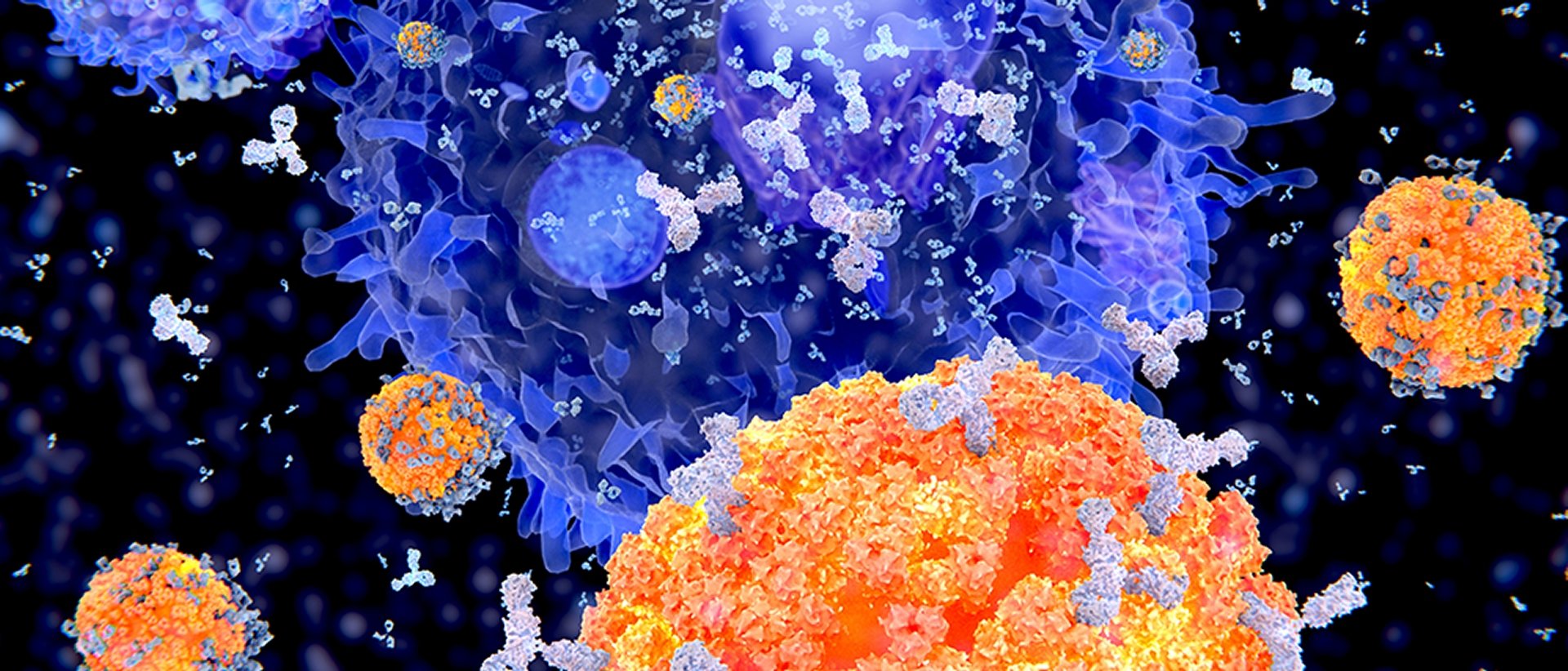Basel – Viruses such as HIV or the pathogen that causes hepatitis C can take over the immune system. One way to develop vaccines against this chronic infection so far has targeted so-called memory B cells in the immune system. Researchers at the University of Basel have now reported that these cells need the help of other memory cells to effectively defend the organism against chronic viruses. An important consequence of vaccine design.
An arsenal of immune cells defends the organism against pathogens. When infected with a virus, B cells produce appropriate antibodies that inactivate the virus. Some of these B cells die again after infection or vaccination, but some of the B cells remain in the body as memory cells so that the correct antibodies can be produced more quickly if the same pathogen is re-infected. Vaccines target, among other things, the formation of memory B cells.
However, viruses such as HIV or hepatitis C bypass the defense of memory B cells – an obstacle to the development of effective vaccines. In order to overcome this obstacle, the research team led by Professor Dr. Daniel Benschwer of the Department of Biomedicine at the University of Basel examines the reaction of immune cells in chronic viral infections.
“One of the problems is that memory B cells fall into a kind of panic reaction due to the constant presence of pathogens and the associated inflammation,” Benschwer explains. From the breeding and maturation program, they all switch to the antibody production pattern and soon die. The team is now reporting on possible treatments for this problem in the specialized journal “PNAS”.
Helper memory T cells inhibit panic reactions
For their experiments, the researchers studied infection of mice with a virus called lymphocytic choriomeningitis virus (LCMV), which causes chronic infection in animals. They discovered that memory B cells need the help of other immune cells for a sustained response to viruses: helper memory T cells, the formation of which can also be stimulated by appropriate vaccination strategies.
If researchers stimulate the formation of appropriate helper memory T cells in test animals prior to infection with LCMV, the latter prevents the panic reaction of memory B cells after infection. “Instead of wasting the entire store of B cells in the unsuccessful fight against the virus, thanks to the helper memory T cells, there remains a reserve of B cells that continue to multiply and mature and maintain the defense against the virus,” So Dr. Christine Nar, lead author of the study.
The role of helper memory T cells in chronic virus vaccination has not been sufficiently considered so far. “Knowing that these cells can be used to promote a more sustainable immune response through memory B cells is of direct relevance to strategies for developing novel vaccines against HIV and hepatitis C,” Benschwer stresses.
Originalpublikation
Christine Nar et al.
Vaccine-derived CD4 T cells inhibit antiviral B-cell deletion in chronic inflammation
PNAS (2021), doi: 10.1073/pnas.2108157118
Experimental Virology Research Group

“Alcohol buff. Troublemaker. Introvert. Student. Social media lover. Web ninja. Bacon fan. Reader.”






More Stories
“Time seems to cure long Covid.”
Science: The use of artificial intelligence is changing the way hospitals operate
Simple recipe: sweet cream cheese slices from the tray